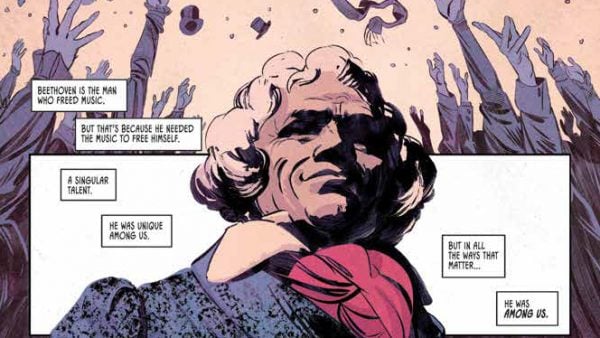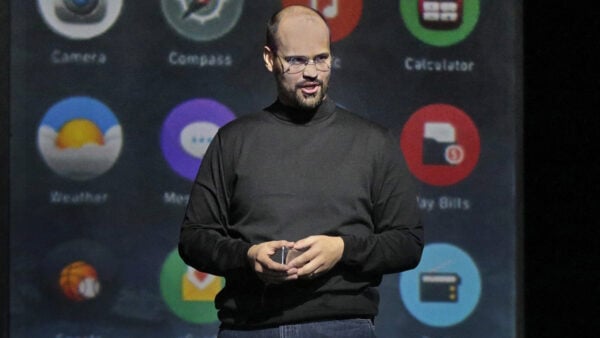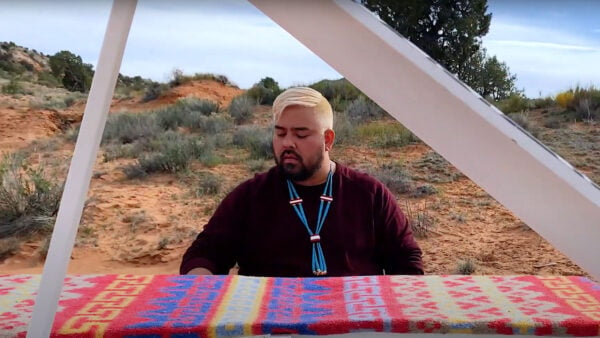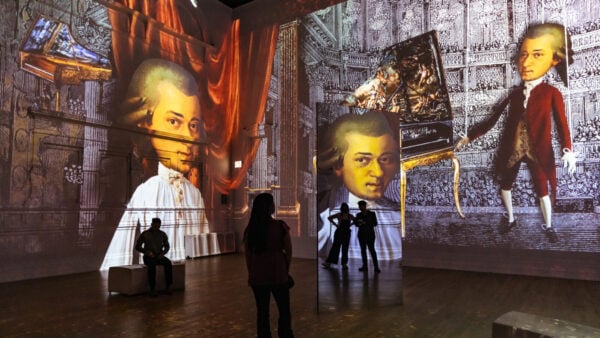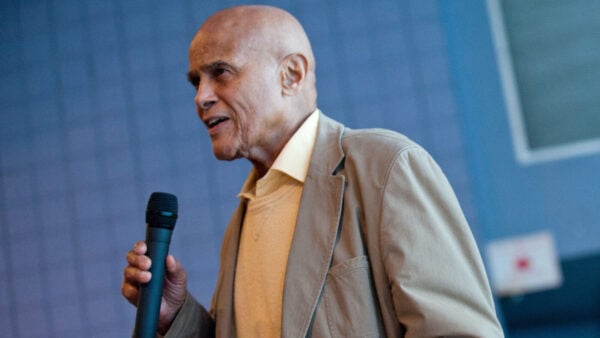
Shawn E. Okpebholo (Photo: Greg Halvorsen Scheck)
It’s more than ingredients that go into a recipe.
In Chicago composer Shawn E. Okpebholo’s new opera, The Cook-Off, we follow three different chefs, each vying for cooking show glory — and $100K — by tackling the classically American dish macaroni and cheese. But like the contestants themselves, the story behind mac and cheese is not quite as clear-cut as the show’s bombastic host, Kenny Kincaid, might have us believe. Through music and food, we delve into hidden histories, both personal and culinary.
The comic chamber opera comes from Okpebholo and Pulitzer and Grammy-winning librettist Mark Campbell. It’s Okpebholo’s first foray into opera, and it was created under the auspices of Chicago Opera Theater’s Vanguard Initiative, a multi-year residency for emerging opera composers. Through Okpebholo and Campbell, The Cook-Off takes a fresh and appetizing approach — after all, the composer reflects, “I don’t know if [a cooking show] has ever been done in an opera.”
WFMT spoke with Shawn E. Okpebholo about The Cook-Off ahead of its concert premiere on May 11.
WFMT: How did you land on this subject? And what’s the significance of mac and cheese?
Shawn E. Okpebholo: When I was starting the piece, I had just finished several pieces that dealt with Black pain. Slavery, police brutality against unarmed Black men and women. I was like, “I need to do something different.”
There’s this Netflix show called High on the Hog [a documentary series about the influence of Black cuisine on American culture], and the third episode talks about Thomas Jefferson’s slave, James Hemings, who has finally been credited with bringing the mac and cheese to our shores. Hemings was a French-trained chef. I don’t remember all of the particulars, but the gist is that Jefferson said, “I will give you your freedom if you teach your brother how to cook like you.”
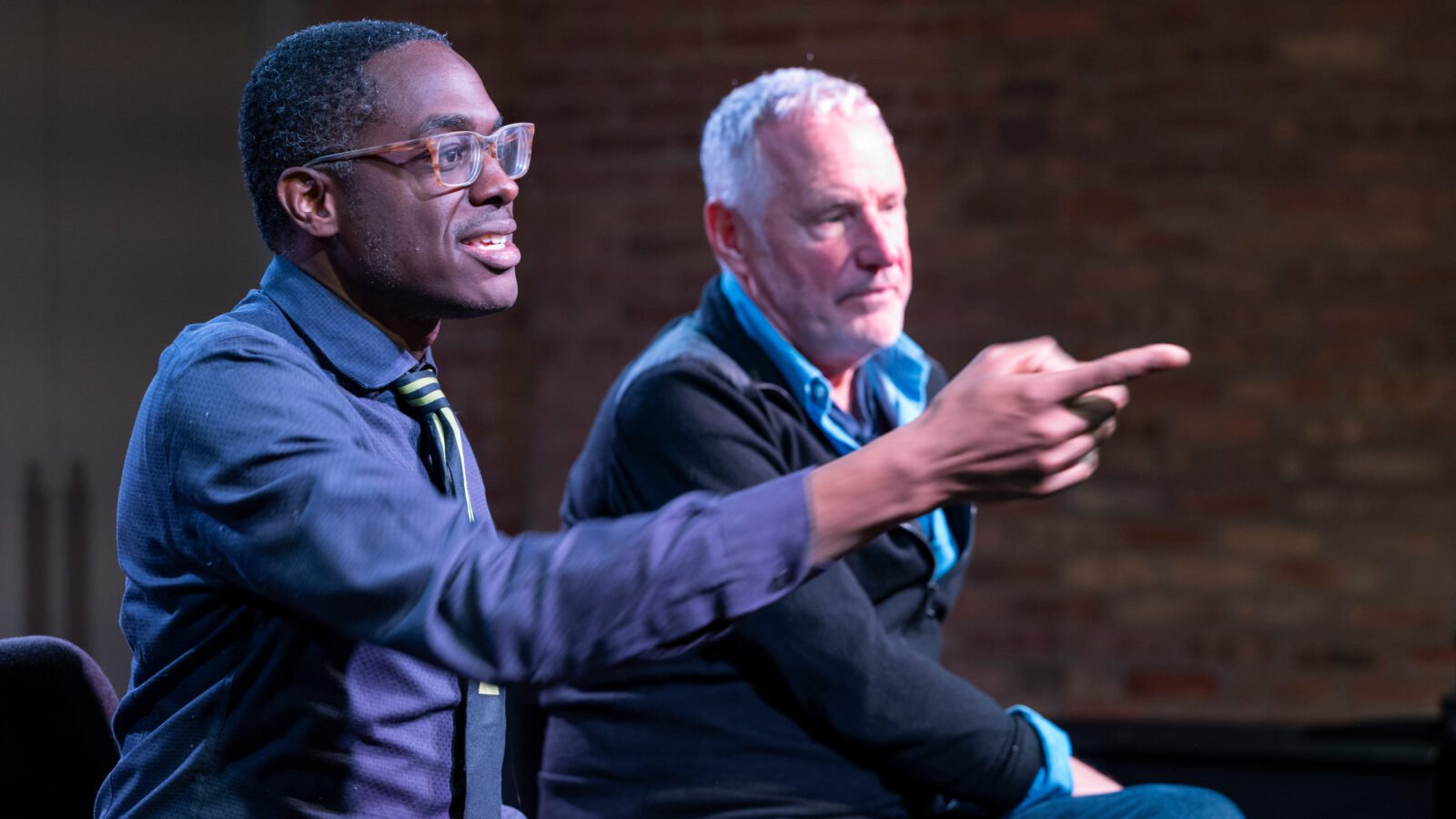
Shawn E. Okpebholo and Mark Campbell (Photo: Michael Brosilow)
I initially thought the story of James Hemings could be the opera, but that idea was spun into the direction we ended up taking. I’m a foodie. And I’m from Kentucky, so I was drawn to this connection to the South. So, I just came to the brilliant librettist Mark Campbell with a list of things I was interested in, and he came up with this idea.
WFMT: How did you and Mark Campbell represent the characters’ different backgrounds through music and through words?
Okpebholo: Mark was able to create a story and narrative where the characters have very unique qualities and flaws and stories. So, once I was able to fully connect with these characters, it allowed for me to write music that evokes them. I try to give musical personalities to each of these characters.
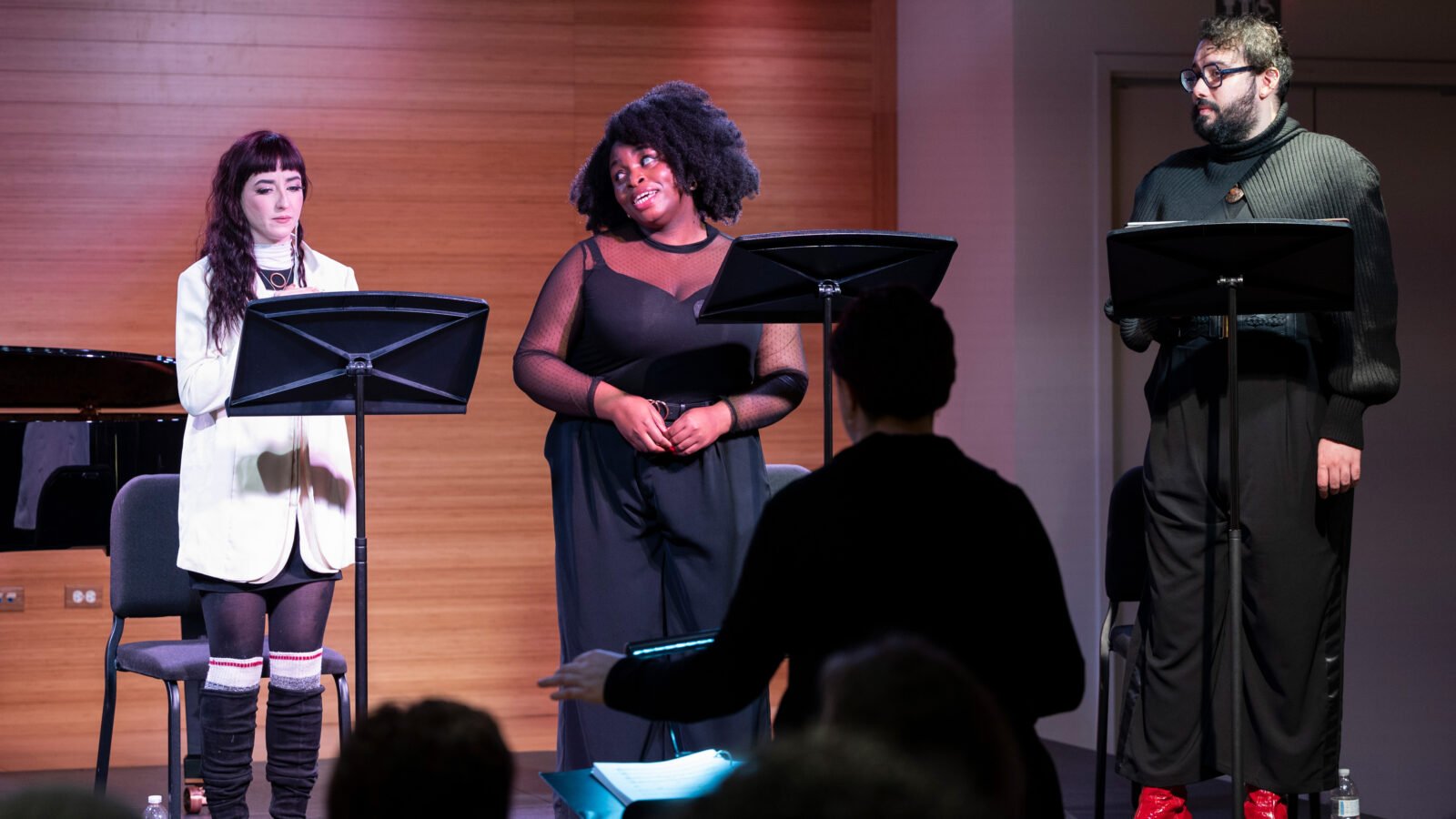
Castmembers of The Cook-Off (L-R): Corinne Costell as Ivy, Veena Akama-Makia as Kendra, and Karlos Piñero-Mercado as Álvaro (Photo: Michael Brosilow)
WFMT: What similarities are there in the role music and food can play in broadening our understandings of people’s stories and backgrounds?
Okpebholo: I’m going to say something kind of hyperbolic. Everyone loves music. Different types of music — not everyone loves classical or country or rap, or whatever. But who doesn’t like music?
And who doesn’t like food? You may not like a particular type of food, but most of us love food. And as an American, who doesn’t like mac and cheese, right!?
Music is powerful. It can make you cry. It can make you laugh. It can make you mad. It’s pretty magical. There are times when you will hear something that will make you weep! Music has a way to evoke certain emotions, and it can also drive narrative, too. It’s the perfect medium to tell a story. I think that’s what opera is, stories that people can connect to.
Chicago Opera Theater presents the concert premiere of The Cook-Off, with music by Shawn E. Okpebholo and a libretto by Mark Campbell on Thursday, May 11, at the Athenaeum Center. For ticketing and information, visit chicagooperatheater.org. This interview has been lightly edited for clarity.


